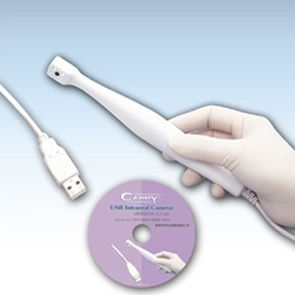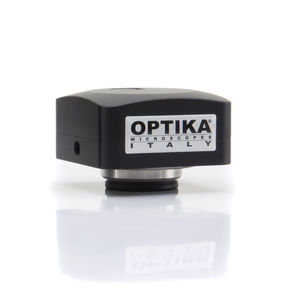- If the drivers aren't loaded, the system drivers are used. The Samson microphone then shows up under Sound, video and game controllers as USB Audio Device and under Universal Serial Bus controllers as USB Composite Device. Right-click on the devices and select Properties to see the driver information.
- These device adapters have been written by several different authors, all behave slightly differently, and interact with specific hardware that has its own peculiarities. On these pages we will maintain as much information as possible about Micro-Manager device adapters. This will help you configure and understand your Micro-Manager system.

Drivers Suni Imaging Microsystems USB Devices
The ASMedia USB driver provides improved performance and support for USB 3.2 based cameras when used with an add-in card and enables the use of longer cables with increased reliability. Download ASMedia USB Driver Version 1.16.60.1-2. Locate the Unknown Device. RELATED: How to Use the Windows Device Manager for Troubleshooting You’ll see information about Unknown Devices in the Device Manager.To open it on Windows 10, 8.1, or 8, right-click in the bottom-left corner of the screen or press Windows Key + X and select Device Manager. Usb Camera software, free download - VIMICRO USB PC Camera (VC0303), EOCP Driver for Sony Eyetoy USB Camera, USB PC Camera (SN9C102), and many more programs.


Updated Monday, April 29, 2015.
Drivers Suni Imaging Microsystems Usb Devices Usb
- Today we have to inform you about an issue which can occur when connecting an USB camera like Olympus SC30 / SC50 / SC100 and LC10 / LC20 to all computers equipped with Intel® Series-8 or Intel® Series-9 chipsets.
Detailed Description
Phenomena observed, when running OSIS USB cameras using respective computers include:
• Camera is not recognized
• Camera initialization fails
• No live image observed
• Live image is corrupted
• Live image stream stops
The root cause of this failure is a hardware flaw in the Intel® 8 and Intel® 9 chipset itself. A description of the root cause is given by Intel® under: http://www.intel.com/content/dam/www/public/us/en/documents/specification-updates/8-series-chipset-pch-spec-update.pdf
While the description of the bug in Intel®’s documentation is rather complete (please refer to section ‘Errata’ starting at page 10), the bad news is, that Intel® has set all respective bugs to ‘No Plan to Fix’ which means the problems will persist for all Intel® 8 and Intel® 9 chipset based computers.
Articles concerned
Name Version affected
LC10 All lots
LC20 All lots
SC30 All lots
SC50 All lots
SC100 All lots
Support
Identifying your computer’s chipset revision.
The respective information regarding the chipset of your computer is accessible using the ‘Device manager’ of your Windows® operating system. To open the device manager:
ü press the ‘Start’ button
ü select and press ‘Control Panel’
ü select and press ‘System’
ü select and press ‘Device manager’
The device manager visualizes your computer’s devices using a tree view window. Scroll through this window until you find the entry ‘Universal Serial Bus controllers’. Expand this entry to receive a detailed view of your USB devices.
Next watch out for an entry starting with ‘ Intel® 8 Series ‘ or ‘ Intel® 9 Series ‘. If your computer does not have a respective entry containing the substring ‘ Intel® 8 Series ‘ or ‘ Intel® 9 Series ‘ your computer is not based on the affected chipset and you may skip the rest of this guide.
TO FIX THE PROBLEMS DESCRIBED ABOVE YOU HAVE THE FOLLOWING OPTIONS:
Fixing the problem for all USB 2 and USB 3.0 cameras ( LC10/LC20/
SC30/SC100 and SC50) by using a separate USB interface card
Please install the USB3.0 add on controller that is supplied with your OSIS USB camera. Make sure to connect the external power connector of the controller to the PC power supply (necessary cables are included). Install the latest original device drivers (not needed for Windows 8 and higher).
In case your camera was shipped without an add-on USB controller card, we recommend to use this controller board:
Delock PCI Express card 89243 2 x USB 3.0
Note:
There is a large variety of USB add-on controller cards available from different vendors supporting a wide range of different chipsets and drivers. Some of them may work, others may not. OSIS strongly suggests to only use the model recommended above.
The manufacturer of the card is not able to guaranty, that all USB add-on controllers do have the latest firmware flashed. In case of acquisition problems it is therefore strongly recommended to check the firmware version of the card to carry version 2024. To update the respective firmware, please download the latest firmware version from:
ftp://ftp.olympus-sis.com/pub/download/Support/DeLock_USB_Firmware_2024.zip
And proceed with the installation steps as given below:
• Extract the file after downloading it. It contains a file “K20XXFWUP1.EXE” and a TXT file containing the Release information
• Disconnect all USB devices connected from all USB3.0 ports.
• Execute 'K20XXFWUP1.EXE', read all messages carefully until you can proceed to Update the firmware
• Restart your computer
• Check with the device manager that the correct firmware was flashed. Expand “USB-Controller” and open RENESAS Electronics USB 3.0 Host Controller. Open the tab “Advanced”. If 'Firmware Version' is 2024 you succeed in updating the card.
Fixing the problem for USB2 cameras (LC10/LC20/SC30/SC100 only) by switching off onboard USB 3.0
Note:
Switching off USB 3.0 will force all connected USB 3.0 devices to use USB 2.0 only. This will probably slow down these devices.
Access the BIOS of your computer and try to find a respective entry which allows to configure your computer’s onboard USB support. Switch USB to support USB 2.0 only. This will force your onboard USB controller to support USB 2.0 devices only.
(Some BIOS versions name this option ”xHCI functionality” which has to be DISABLED. Alternatively, it could also be named “USB Debbuging”. In that case, this option has to be ENABLED. Please refer also to your mainboard reference manual for additional information)
Save the new BIOS settings and reboot your computer.
TSI_1-2015_USB_camera_Intel_8-9_rev_FAQ.pdf - Please have a look into the attached document to get a FAQ about the netHASP
netHASP_FAQ_DEU.pdf
netHASP_FAQ_ENG.pdf - As a member of the Windows user group “Users“ I do not have enough privileges to run the Image Analysis Software without any problem.As a standard “User” you normally do not have the privilege to save a file into the directory “C:program files”.
Please ask your administrator to change your account to be a member of the group “Power Users” or let him change your privileges for the Image Analysis Software directory only. You need full access to the program folder of your Image Analysis Software. - Computer crashes with 'KMode exception not handled'This is a problem of the Logitech Mouse driver. If you remove the USB mouse and start windows, there should be no problem. You can plug in the mouse at the log-in screen and start windows without any problems. To avoid these problems, there are two possibilities:
- Connect a PS/2 mouse instead of an USB mouse
- Remove the Logitech driver and use the standard Microsoft driver
- Loading images stored as JPEG-without-compression is not possible with third party applicationsThere are only a handful of programs available on the market which can handle this special JPEG-without-compression format. To save such lossless images please use the uncompressed TIF format this can be read by many applications.
- Loading 16-bit images in other applications is not possible if the images were stored with the image analysis softwareMany applications, like Adobe Photoshop or Microsoft Word, only support a small variety of possible TIF standards. They don’t support the 16-bit TIF image format. You have to switch the color depth of such images to 8-bit or 24-bit using the image analysis software.
- Latest documentation of the Image Analysis SoftwareOur main user’s guide is delivered with every image analysis software order. On the installation CD-ROM you can find PDF files of every manual in various languages as well.
- Please have a look into the attached document to find the basics of the Online Shading Correction.
Online_Shading_Correction_DEU.pdf
Online_Shading_Correction_ENG.pdf - Problems with Windows XP Service Pack 3 and non ROHS Olympus Soft Imaging Solution FireWire cameras
Olympus Soft Imaging Solution has discovered a problem with non ROHS conform FireWire cameras and the Service Pack 3 of Windows XP.
After installing the Service Pack 3 or running a fresh Windows XP installation including Service Pack 3 the Image Analysis Software cannot find the attached FireWire camera. Also in the device manager of Windows the camera is not listed under Imaging Devices. This problem is not related to the Image Analysis Software.
All older Olympus Soft Imaging Solution FireWire cameras are affected. If you have a new ROHS compliant camera you do not have this problem. To identify if your camera is affected please check the last two digits of the serial number of your camera. If these digits lower as 61 the camera is affected.
Please have a look to the attached documents to find out how to resolve this issue.
SP3_rollback_ENG.zip
XP_SP3_Camera_DEU.pdf
XP_SP3_Camera_ENG.pdf Please install the following Hotfix from Microsoft to resolve this issue:
Hotfix KB976477:
http://support.microsoft.com/kb/976477/en
http://support.microsoft.com/kb/976477/deIn some cases the newer USB dongles keep on blinking because the computer is trying to do an automatic firmware update on the dongle (aladdin > sentinel)
Please install the latest driver (or only the firmwareupdate), which already contains the firmwareupdate from the manufacturers website.
- Missing DLL's in the waterfall procedure - IPP RUNTIME 5.4.3
In some cases it happens with newer computers that the IPP (Intel Performance Primitives) are missing.
Please install these missing files with the setup below:
IPP_5_4_3_Runtime.ZIP - AnalySIS or SISXV ini corrupted - missing Add-Ins and camera control
It can happen that with several installations of Olympus Stream, cellSens or Olympus analySIS in a Network using roaming profiles / network profiles the Stream, cellSens or Olympus analySIS files from the roaming Win folders can be overwritten by another installation.
So it can happen that eg. only a desktop version starts up or that a different camera is selected for aquisition and the originally installed camera is missing.
The only way to avoid this problem is to exclude the Olympus folders from the replication or to use unique names for the installations.
- Creation of a new project in a XV SQL data base fails
Please delete the file 'user.xml' while Stream / CellSens is closed from the following folder:
C:users[username]AppDataroamingolympusosis[product]user.xml
If this was not successful please also delete the 'user.xml' from the ProgramData folder:
C:ProgramDataOlympusosis[product]user.xml
- We can recommend the EXSYS EX-16450 FireWire card for PCIe eviroments
- In order to downgrade a wring firmware version of the MT20 the OBSUpdate needs to started in the command line:
obsupdate /force - Installing BX3 or DP26 with another FireWire device (e.g. OSIS camera)Please use the attached PDF document to do the correct installation.

